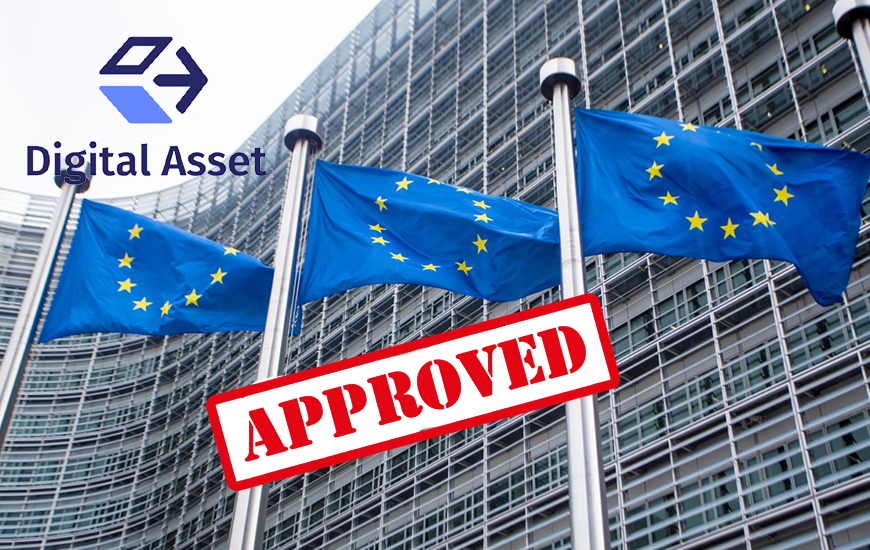- Crypto framework in Europe is moving ahead in the labyrinth of the European Union
- MiCA framework is designed to protect digital currency investors and users from deceits
- MiCA aims to govern the issuers of the fiat-pegged stablecoins
- MiCA negotiation mandate includes several exclusions
- Non-Fungible Tokens are not subject to the framework’s rule
Crypto regulations are getting more rigid as the industry garners mainstream attention globally. Several financial regulators across the globe are seeking to comprehend and regulate the sector. Simultaneously, the European Union’s planned framework for regulating digital assets is one step ahead to become official. On Wednesday, the European Council, which guides the EU’s political agenda, announced its position on the Markets in Crypto Assets (MiCA) framework and the Digital Operational Resilience Act (DORA). Indeed, the crypto framework in Europe is moving ahead in the labyrinth of the EU.
European Council will begin discussion on crypto regulation
In the latest announcement it is revealed that following the deal which must then be ratified, the European Council along with the Parliament may now begin discussions on the initiative before it is finally approved as legislation.
Notably, the MiCA framework is designed to protect digital currency investors and users from deceits. Moreover, the order also includes guarantees that the investor’s funds are secure in the event of a malicious act. Ultimately, under MiCA the authorities can impose more stringent regulations on crypto firms if they believe such platforms sare posing threat to residence.
MiCA will govern stablecoin issuers
Besides stringent regulations, MiCA also aims to govern the issuers of the fiat-pegged stablecoins. MiCA’s focus came after observing Facebook’s desire to issue its own stablecoin that will be backed by a fiat currency.
Notably, the European Central Bank (ECB) has previously highlighted that the regulations will bring comparable cultural standards for payment service providers. Indeed, such standards will help safeguard the users of such crypto assets.
Furthermore, a recent announcement from the central bank noted that the framework will also contain provisions addressing firms governance and risk management. Also the order will prohibit firms from offering such high-risk payment instruments.
It is also worth noting that the MiCA negotiation mandate suggests that the nation will not be relaxing its stance on asset-referenced token issuers. According to the mandate, such issuers are subject to more stringent obligations than issuers of other crypto assets.
Exclusions in the MiCA negotiation mandate
The MiCA negotiation mandate includes several exclusions as well. The European Council has sympathized that asset-referenced tokens authorized under the nation’s capital requirements directive should not require another authorization under the framework to be issued. Moreover, under the regulation the banks and financial institutions that offer settlement services to fiat-pegged crypto assets should be exempt from capital requirements.
NFTs are not subject to MiCA regulations
The European Council has also clarified its stance over Non-Fungible Tokens (NFTs), including digital art and crypto collectibles. Notably, such assets that are valued on the basis of their distinctive characteristics and benefits are not subject to the framework’s rule. Indeed, the rules don’t apply to tokens that represent unique services or real assets like product guarantees or real estate.


 Home
Home News
News










